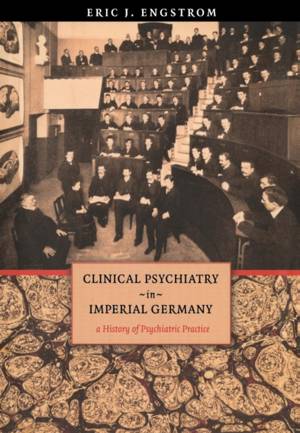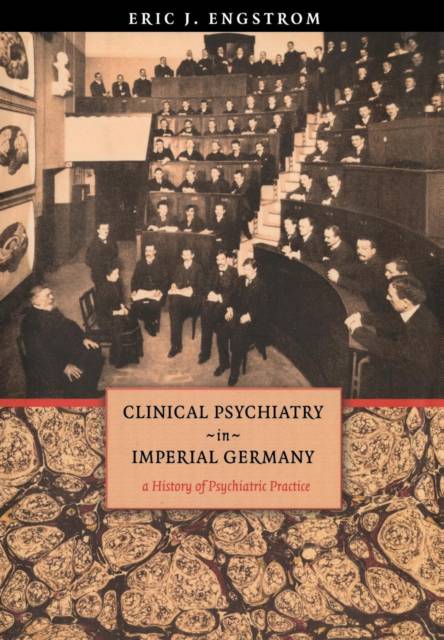
- Afhalen na 1 uur in een winkel met voorraad
- Gratis thuislevering in België vanaf € 30
- Ruim aanbod met 7 miljoen producten
- Afhalen na 1 uur in een winkel met voorraad
- Gratis thuislevering in België vanaf € 30
- Ruim aanbod met 7 miljoen producten
Omschrijving
The psychiatric profession in Germany changed radically from the mid-nineteenth century to the beginning of World War I. In a book that demonstrates his extensive archival knowledge and an impressive command of the primary literature, Eric J. Engstrom investigates the history of university psychiatric clinics in Imperial Germany from 1867 to 1914, emphasizing the clinical practices and professional debates surrounding the development of these institutions and their impact on the course of German psychiatry.The rise of university psychiatric clinics reflects, Engstrom tells us, a shift not only in asylum culture, but also in the ways in which social, political, and economic issues deeply influenced the practice of psychiatry. Equally convincing is Engstrom's argument that psychiatrists were responding to and working to shape the rapidly changing perceptions of madness in Imperial Germany. In a series of case studies, the book focuses on a number of important clinical spaces such as the laboratory, the ward, the lecture hall, and the polyclinic. Engstrom argues that within these spaces clinics developed their own disciplinary economies and that their emergence was inseparably intertwined with jurisdictional contests between competing scientific, administrative, didactic, and sociopolitical agendas.
Specificaties
Betrokkenen
- Auteur(s):
- Uitgeverij:
Inhoud
- Aantal bladzijden:
- 320
- Taal:
- Engels
- Reeks:
Eigenschappen
- Productcode (EAN):
- 9780801441950
- Verschijningsdatum:
- 24/12/2003
- Uitvoering:
- Hardcover
- Formaat:
- Genaaid
- Afmetingen:
- 155 mm x 238 mm
- Gewicht:
- 616 g

Alleen bij Standaard Boekhandel
Beoordelingen
We publiceren alleen reviews die voldoen aan de voorwaarden voor reviews. Bekijk onze voorwaarden voor reviews.











